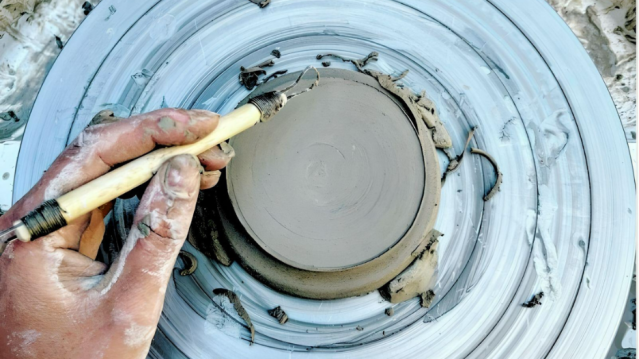Aging
The Surprising Truth About Who Opts for Palliative Care
A study of 407 cancer patients says palliative care is a final act of hope.
Updated August 23, 2024 Reviewed by Tyler Woods
Key points
- Many people avoid palliative care (non-curative pain relief at end-of-life) because they see it as giving up.
- In past studies, two beliefs were tied to giving up: seeing the world as ugly and where little can be changed.
- But new study of 407 cancer patients ties wanting palliative care to seeing a beautiful and malleable world.
- Researchers speculate: on even the final road to death, hopeful patients may see much to cherish, even enjoy.
Palliative care helps sick people die comfortably. Yet many don't use it. Some feel it means giving up, embracing pessimism, an act of depression, or an implicit recognition that you don’t have enough worth fighting for.
A new correlational study suggests something else might be going on.
We surveyed 407 cancer patients and survivors, asking a battery of questions. We looked at depression, meaning in life, and many other attributes, including “primal world beliefs” associated with hopelessness.
What are primal world beliefs?
In psychology, primal world beliefs (often abbreviated primals) refer to extremely basic, implicit beliefs about the typical character of most things and situations (for a recent scholarly review see this journal article). For instance, everyone agrees that the world has many safe as well as many dangerous characteristics. However, when push comes to shove, on balance, how safe or dangerous is the world? How beautiful is it? How abundant is it? And so forth.
In 2019, in a vast bottom-up approach starting with the analyses of extensive textual data, we found that study subjects varied when it came to 26 primal world beliefs, several of which were tied to hopelessness. This includes two beliefs that the world is a dull, barren place with few beautiful things worth enjoying ( low Enticing world belief) and a place where most situations are just too hard to improve (low Improvable world belief). We thought that these two beliefs would be associated with never giving up on life, including not resorting to palliative care.

In a world where not much has value, and where most things are too hard to improve, giving up makes sense, right?
It's better to accept your lot than spin your wheels trying to change what can’t be changed, the prevailing wisdom might suggest.
But our study found the opposite. Sick people who were more open to palliative care scored higher in both Enticing and Improvable world belief, even when controlling for things like age, gender, income, and symptoms of anxiety and depression. This meant that they saw the world as a place full of value and a place where most things can be changed. These are the people supposedly "giving up."
These relationships were large. For instance, we looked at if the same palliative care attitudes were common among people with the same personality traits (we looked at the Big Five, which are the five main personality traits psychologists study, including extraversion and neuroticism). We looked at having meaning and satisfaction in life. We looked at depression, anxiety, quality of life, age, sex, income, relationship status, parenthood status, time since diagnosis, and other primal world beliefs, too. None of them were as strongly tied to palliative care attitudes as Enticing and Improvable world beliefs.
The study concludes:
“Enticing and Improvable world beliefs may be among the strongest individual differences for predicting palliative care attitudes."
Huh. What are we to make of this?
Could positive palliative care attitudes just be related to positive primal world beliefs because people who tend to be positive about stuff in general would be positive about both, and negative people might be negative about both?
Probably not. Overall, Good world belief—the most positive of them all—was not as related to positive palliative care attitudes. And many other variables were positive, too (e.g., life satisfaction and low depression).

Another idea that we've been thinking about is that maybe this connection between palliative care attitudes and these two beliefs implies a grounded hope, not that one can stay alive when one can't, but a deeper hope among the dying that, along even their final road to death, there is much to cherish, even enjoy.
Palliative care as a final act of hope
In general, people seem to use primal world beliefs the most when making guesses about the unfamiliar. For example, people who see the world as dangerous think neutral faces are more likely angry and criminal. People who see the world as dangerous also tend to estimate low incidence threats (such as being murdered, robbed, attacked by a bear, etc.) on average 4.2x higher than those who see the world as safe (bottom versus top 20 percent).
If other primal world beliefs are used to interpret the unfamiliar too, then it’s very possible that Enticing world belief could be tied to an increased expectation that there is value to be had in the final days of life. Dying, after all, is unfamiliar, exactly a situation where researchers would expect the impact of world beliefs.
Nobody gets to make their final journey twice.
Personally, this research has left us feeling a bit more likely to use palliative care when it is our turn to die. In general, when a person goes on, say, a big trip, when we find ourselves on the final leg of an epic journey, it seems like the only thing left to do is get comfy with one's loved ones and enjoy the last sights and sounds, together.
This article was co-authored with Dr. Nicholas Kerry, a postdoctoral fellow at the Penn Primals Project and lead researcher on the study.
References
Kerry, N., Perry L. M., & Clifton J. D. W. (2024). Predictors of palliative care attitudes among US patients with cancer and survivors: ideology, personality, world beliefs. BMJ Supportive & Palliative Care. Published Online First: 15 April 2024. https://doi.org/10.1136/spcare-2024-004892
Clifton, J. D. W. (2024). Psychologists return to the first question of western philosophy. American Psychologist. Advance online publication. https://dx.doi.org/10.1037/amp0001351
Clifton, J. D. W., Baker, J. D., Park, C. L., Yaden, D. B., Clifton, A. B. W., Terni, P., Miller, J. L., Zeng, G., Giorgi, S., Schwartz, H. A., & Seligman, M. E. P. (2019). Primal world beliefs. Psychological Assessment, 31(1), 82-99. http://dx.doi.org/10.1037/pas0000639




